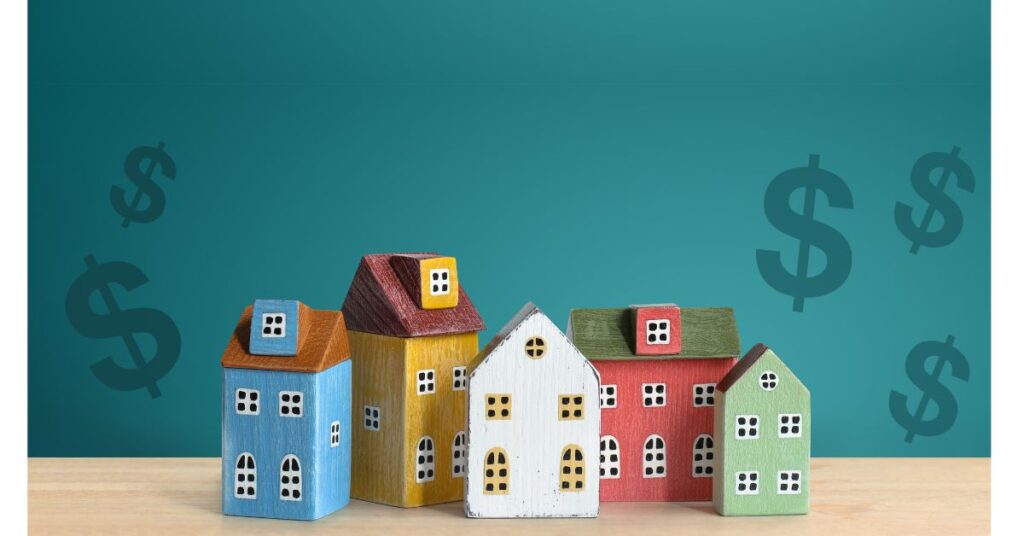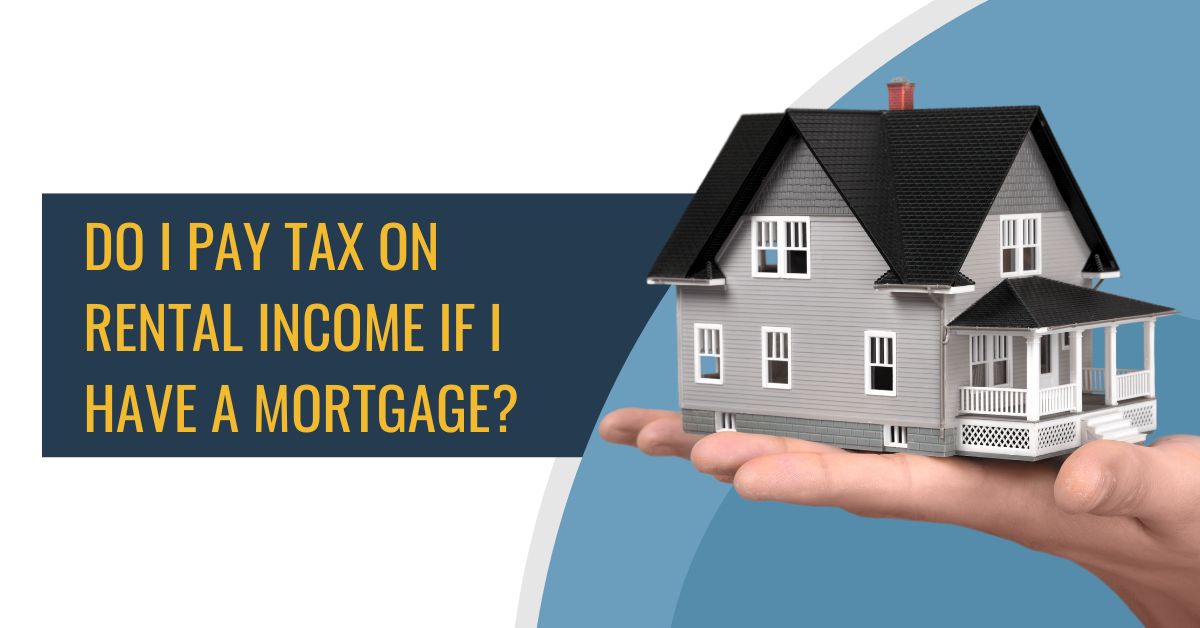As a landlord in the UK, you might be wondering, “Do I pay tax on rental income if I have a mortgage?” The short answer is yes—you still owe tax, but smart planning can reduce what you pay. While your mortgage itself doesn’t make your income exempt, specific rules and allowances let you claim deductions on interest and other costs.
From experience, many landlords miss key tips to optimise their tax position. The intricacies of taxation mean having a property with a mortgage impacts what you generate from rent. It’s essential to understand these implications—whether you’re new to renting or running a lucrative venture. This article will break down the key points so you know exactly what’s available to you under UK obligations.
Understanding Rental Income Tax

In the UK, your rental income is taxed by adding profits to your total annual income. The rate you pay depends on which tax band you fall into for the 2024/25 tax year:
Basic Rate (20%): Applies to rental profits between £12,571 – £50,270 (after your £12,570 Personal Allowance)
Higher Rate (40%): Applies to profits between £50,271 – £125,140
Additional Rate (45%): For profits above £125,140
What Landlords Need to Know?
Tax Calculation: Your rental profits combine with other income (salary, dividends, etc.) to determine your tax band. Earning £1 over a threshold could push part of your income into a higher rate.
Scotland Differences: Rates vary slightly (19%/20%/21%/42%/47%).
Net vs. Gross: Only net income (after allowable expenses like maintenance, agent fees, etc.) is taxed—not the full rent amount.
Mortgage Rules: You can’t deduct mortgage interest from rental income but get a 20% tax credit on interest paid.
Smart Strategies:
Claim all legitimate expenses to reduce taxable profit.
Consider a chartered accountant to optimize your position—especially if rental income pushes you into a higher band.
Example: If you earn £60,000 from a job and £20,000 from rentals:
£12,570 = tax-free
£37,700 taxed at 20%
£29,730 taxed at 40%
Note: The 20% mortgage interest credit benefits basic-rate taxpayers most.
Do I Pay Tax on Rental Income if I Have a Mortgage?
Yes, you must pay tax on rental income even with a mortgage—the bank loan doesn’t cancel tax obligations. I’ve seen many landlords assume their mortgage costs eliminate their tax burden, but HMRC treats rental income as taxable regardless of financing. Your total rental income (including fees and charges from tenants) gets added to your earnings, pushing you into a personal tax band.
The good news? You can reduce what you owe through allowable expenses—including a portion of your mortgage interest (as a 20% tax credit). For example, if your property generates £10,000 annually, you’d report this via Self Assessment, then offset costs like maintenance or mortgage interest. Profits (not gross income) are what’s taxed.
Important note: The rent a room scheme offers tax-free relief on the first £1,000 of income, but beyond £2,500, you must declare it. Complexities arise when calculating eligible deductions, especially with mixed-use properties. I always advise consulting a professional to ensure you’re claiming everything legally—like mortgage costs or leasing fees—without triggering an HMRC audit.
Does financing change the rules? Unfortunately, no. Whether you owe £9,999 or £10,000, the standard Income Tax rates apply. The key difference is how much you can deduct. Managing obligations efficiently means tracking every payment, from salary top-ups to rent collected.
You might also like: What Does Tax Code BR Mean? Unlock the Mystery
Mortgages and Rental Properties
When you purchase a rental property using a mortgage, you borrow money from a lender, using the property as collateral. Most landlords opt for interest-only mortgages, though some prefer repayment mortgages. While this lets you leverage your investment with less upfront cash, it also adds financial obligations that impact profitability.
HMRC regulation states you can only claim interest expenses against rental income—not the full mortgage payments. For example, if James pays £6,000 per year on a repayment mortgage (£2,500 interest, £3,500 principal), only the interest amount is claimable. But higher-rated earners (40%-50% income tax) face stricter rules: they can claim half the interest.
Even with a buy-to-let mortgage, HMRC treats all rental income as taxable. But smart landlords offset costs like maintenance, letting agent fees, and mortgage interest. The key? Know what’s deductible—and track every pound.
How is Rental Income Taxed UK
Renting out property generates taxable income, which you must report to HMRC by registering for self-assessment. Knowing how your income is taxed helps you follow the rules and maximize profits after tax. Whether you’ve made a loss or a profit, you must declare it on your annual tax return.
Self-Employment Tax for Landlords
If you’re actively involved in managing your property—like advertising for tenants, collecting rent, or handling property management decisions—HMRC may treat your rental income as self-employment income, subjecting it to additional tax.
How Proper Tax Planning Can Save You Money
Take Tristan, a landlord with £15,000 rental income, who was overpaying tax due to missed expense claims. By reviewing his mortgage interest, repairs, and tax reliefs, we helped him save £5,000 annually. Key strategies included:
✅ Optimising mortgage interest deductions
✅ Claiming overlooked tax reliefs
✅ Ensuring full HMRC compliance
Key Deadlines & Payments
Tax on rental income is paid via self-assessment, with critical deadlines:
5th October: Register if you’re a new landlord
31st January: File your tax return and pay what’s owed for the previous year
If your income exceeds £10,000, you may need to make advance payments (called payments on account) toward next year’s tax bill.
Tax Deductions for Rental Properties
Rental property owners can significantly reduce their overall tax liability by claiming various tax deductions. From mortgage interest to property maintenance, these write-offs help offset taxable rental income while increasing cash flow.
Mortgage Interest: Your Biggest Tax Relief
As the most significant proportion of property business expenses, mortgage interest payments remain deductible—though rules have changed. While you can no longer claim the full amount, the 20% mortgage tax credit still offers valuable savings, especially in your property’s early years when interest dominates monthly payments.
Don’t Overlook These Deductions
Council tax: Fully deductible and varies by location
Depreciation (capital allowance): Claim wear and tear annually as a non-cash expense
Repairs & maintenance: Everything from fixing leaks to letting agent fees counts
Pro Strategies from Tax Experts
- Document everything– Even small expenses like lightbulbs add up to reduce taxable profit
- Ownership structures matter– Transferring to a lower tax band partner or incorporating can slash bills (but get professional advice first)
- Team up with specialists– A chartered accountant ensures you claim every allowance while staying compliant
What If You Don’t Declare Rental Income?
HMRC is watching. Through its Let Property Campaign, HMRC encourages landlords to come clean with undeclared income in exchange for reduced penalties.
Ignore it? You could face:
- Up to 100% of the unpaid tax in penalties
- Daily interest charges
Common Myths About Rental Income Tax
❌ “If I have a mortgage, I don’t pay tax” – Not true.
❌ “If rent covers expenses, I owe nothing” – You still owe tax on net profit, and sometimes even before deducting mortgage interest.
Conclusion
Yes, you must pay tax on rental income even with a mortgage—but strategic planning keeps more money in your pocket. While your mortgage payments don’t eliminate tax, the 20% mortgage interest tax credit and full deductions for maintenance, agent fees, and council tax can significantly reduce your bill. Remember: higher-rate taxpayers lose half the interest relief, and every pound of undeclared income risks HMRC penalties up to 100% of what you owe.
The key takeaway? Track every expense, claim every legal deduction, and never assume your mortgage makes you tax-exempt. For optimal results, consult a property tax specialist—especially if rental income pushes you into a higher tax band or you’re considering incorporation. Stay compliant, stay profitable, and let the tax system work for your rental business, not against it.
FAQs
Do I pay tax on rental income if I have a mortgage?
Yes. Even with a mortgage, all rental income is taxable. However, you can claim a 20% tax credit on mortgage interest and deduct allowable expenses to reduce your tax bill.
How can I avoid paying tax on rental income?
You can’t avoid tax completely, but legal strategies include:
Claiming all allowable expenses (maintenance, agent fees, etc.)
Using the Rent-a-Room scheme (£7,500 tax-free allowance)
Transferring ownership to a lower-rate taxpayer
Incorporating your property business (though this has complications)
What if my mortgage costs are more than my rental income?
You still must report the income, but you may have:
No tax to pay if you make a loss after deductions
The ability to carry forward losses to offset future profits
Partial relief via the 20% mortgage interest tax credit
Do I need to report rental income if I make no profit?
Yes. HMRC requires declaration of all rental income, even if:
Your expenses exceed income (creating a loss)
Your mortgage payments are higher than rent received
You’re only breaking even
What if my rental income is less than my mortgage payment?
This doesn’t exempt you from:
Reporting requirements (must file Self Assessment)
Tax on your rental income (calculated before mortgage principal payments)
Claiming the 20% tax credit on the interest portion
Can I deduct my full mortgage payment from rental income?
No. Only the interest portion qualifies for the 20% tax credit (not principal repayments). Higher-rate taxpayers get less relief.
What expenses can I deduct to reduce my tax bill?
Key deductible expenses include:
Mortgage interest (partial)
Property repairs and maintenance
Letting agent fees
Council tax and utilities (if paid by you)
Insurance and safety certificates
When must I declare my rental income?
Critical deadlines:
5 Oct: Register for Self Assessment if new to renting
31 Jan: File return and pay tax owed
Payments on account required if income >£10,000
What happens if I don’t declare rental income?
HMRC penalties include:
Fines up to 100% of unpaid tax
Daily interest charges
Potential criminal prosecution for severe cases
Is rental income taxed differently in Scotland?
Yes. Scotland uses different tax bands (19%-47%) but the same deduction rules for mortgage interest and expenses apply.


1 thought on “Must You Declare Rental Income If You Have a Mortgage?”